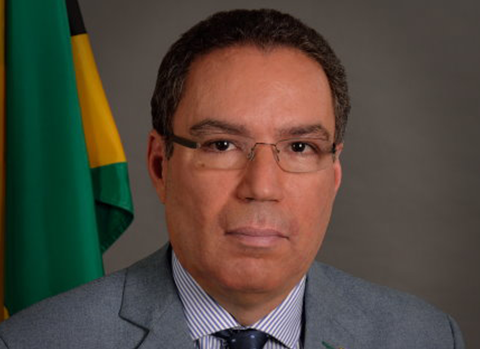USF Expands Digital Access and Inclusion
By: , October 6, 2025The Full Story
The Universal Service Fund (USF) has become more than just a policy instrument or a funding mechanism in Jamaica.
It is a national entity that has expanded digital access, inclusion and opportunities across the island.
From its origins 20 years ago to its current prominence, the USF’s history is a narrative of vision, partnership, and a strong determination to ensure that every Jamaican, regardless of where they live, can participate in the digital economy.
Chief Executive Officer (CEO) of the USF, Charlton McFarlane, frequently frames the USF not as a distant regulator but as a practical enabler of everyday life for families, students, small businesses, and rural and urban communities.
“The mandate is simple in principle but profound in impact: universal access, universal opportunity, and universal inclusion in Jamaica’s digital future,” he tells JIS News in an interview.
“This vision has guided the USF from its early days to its current, expanded footprint,” he adds.

The roots of the USF trace a response to a clear national need. Jamaica’s geography presents logistical challenges that can hinder consistent, affordable connectivity.
Rural and deep-rural communities – where hills, valleys, coastlines, and dispersed settlements complicate service delivery – were at risk of being left behind in the information age. The USF emerged as a strategic instrument to close this gap. Its creation signalled a public commitment to ensuring that connectivity is not a privilege of proximity to urban centres but a right extended to all Jamaicans.
One of the most defining pillars of the USF’s work is the deployment of free community Wi Fi to expand connectivity. The mission is not merely to lay cables or instal towers; it is to instal possibilities.

In this regard, the USF has constructed a multi-pronged approach, built on three interlocking pillars – connectivity, skills, and devices. This tripod remains central to Jamaica’s digital ambitions.
The connectivity pillar ensures that internet access reaches communities that would otherwise be isolated. The skills pillar focuses on digital literacy, capabilities, and the practical know how to leverage online tools for education, entrepreneurship, and social engagement. The devices pillar recognises that access is incomplete without the hardware and platforms that enable participation in online life.
“The impact of this approach is tangible across Jamaica’s landscape. The USF’s network of ICT clubs – spanning more than 27 clubs nationwide, largely anchored in high schools – has become a lifeline for young people seeking to explore technology, content creation, and digital entrepreneurship,” Mr. McFarlane points out.
He notes that these clubs are more than after-school activities, they are incubators of talent and pathways to the knowledge economy.
Mr. McFarlane tells JIS News that students are exposed to mentors, practical projects, and learning experiences that demystify the digital world and reveal concrete opportunities.

He notes that when students, parents, and communities can connect without the immediate burden of subscription fees, the doors to online learning, e government services, telemedicine, and digital markets swing open wider.
The USF, Mr. McFarlane adds, has effectively brought the classroom, the library, and the marketplace to neighbourhood centres, schools, clinics, and community hubs.
For his part, Minister of Transport, Telecommunications and Energy, Hon. Daryl Vaz, says the USF’s contribution to Jamaica is both educational and invaluable.
“The USF is more than a funding mechanism; it is a cornerstone of Jamaica’s development in the information age,” Mr. Vaz tells JIS News.
“For years, the agency has played a pivotal role in expanding access, accelerating digital literacy, and enabling both individuals and organisations to participate in a modern economy. The work is not easy but it is essential for Jamaica’s competitiveness and resilience,” he notes.

His remarks underscore the Government’s confidence in the USF as a strategic instrument that aligns with national priorities for sustainable growth, innovation, and inclusive development.
Meanwhile, Mr. McFarlane says that in celebrating 20 years, the USF remains resolute in its commitment to making Jamaica a globally competitive knowledge economy, noting that the agency’s strategy continues to focus on universal access, skills development, and the provision of devices, ensuring that no Jamaican is left behind in the digital era.
“The story of the USF is, at its core, a story about partnership. The Fund’s success has been shaped by collaborations with government ministries, educational institutions, ICT clubs, industry stakeholders, and community organisations,” the CEO tells JIS News.
“It is this collaborative ethic that has allowed Jamaica to scale up its digital infrastructure, empower its youth, and create a more inclusive information ecosystem,” he adds.


